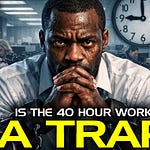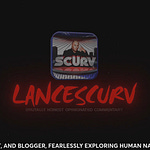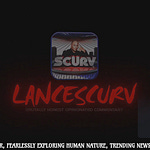This world filled with technological marvels, instant access to information, and advanced healthcare, one would assume that modern life should feel easier, more secure, and deeply satisfying. Yet for millions across the globe — especially in highly developed countries like America, the United Kingdom, and others — an undeniable sense of powerlessness, anxiety, and quiet despair seems to linger beneath the surface. Strangely enough, people living in less developed regions, often with far fewer conveniences and comforts, report lower stress levels and greater day-to-day contentment. Why is this? What is causing so many people in the most "advanced" parts of the world to feel overwhelmed, lost, and emotionally fragile?
The reasons run deeper than the usual headlines about inflation, crime, and political dysfunction. At its core, modern life has detached us from the natural rhythms and foundational supports that once kept human beings mentally, emotionally, and spiritually grounded. Let’s explore the powerful forces contributing to this widespread sense of helplessness, and most importantly, what can be done to reclaim personal peace and power.
The Invisible Weight of Constant Information
Our ancestors lived in smaller communities where most of what they knew came from personal experiences or word of mouth. Today, every tragedy, conflict, scandal, and disaster on Earth is instantly broadcast directly to our pockets through smartphones, social media, and 24/7 news outlets. The human mind was never designed to process the collective suffering of billions on a constant loop.
The problem isn’t simply having access to information; it’s the overwhelming, nonstop nature of it. A war in one country, a mass shooting in another, an economic crash on the other side of the world — it all blends into a constant stream of negativity that convinces us the world is falling apart. Even though most of us cannot influence these distant events, we internalize their weight, feeling helpless to stop or change any of it. This relentless exposure builds anxiety and contributes heavily to the sensation that we're losing control of our own lives.
Disconnected From the Natural World
As modern living pulls us deeper into digital spaces, we drift further from nature — a connection that once sustained and stabilized the human spirit. Our bodies and minds are wired to respond positively to the sun on our skin, the wind through the trees, the smell of rain, and the calming presence of animals and plants. Nature has a healing, grounding effect that no screen or air-conditioned building can replicate.
In many developed countries, people can go days, even weeks, without meaningful contact with the natural world. Their entire existence plays out in artificial environments: concrete cities, enclosed vehicles, climate-controlled offices, and virtual experiences. Without the grounding presence of nature, stress hormones remain elevated, nervous systems stay activated, and a quiet sense of imbalance grows. Those who live simpler lives, often closer to the earth, maintain a connection that naturally counters the chaos of the modern world.
The Tyranny of Comparison
Social media has amplified one of humanity’s most toxic tendencies: comparison. Unlike previous generations, where people only compared themselves to their immediate neighbors, today's comparisons are global and often artificial. We are constantly bombarded with polished, filtered glimpses into other people’s lives — luxury vacations, expensive cars, picture-perfect relationships, and seemingly flawless bodies.
Even if you are doing well by any rational measure, seeing endless images of others "doing better" can trigger feelings of inadequacy, failure, and low self-worth. Over time, these feelings erode confidence and create a quiet despair — the sense that no matter how much you achieve, it’s never enough. This psychological trap leaves many feeling like powerless spectators in a race they can never win.
The Crushing Weight of Economic Pressure
For many living in the wealthiest nations, financial stress is one of the greatest burdens of modern life. Wages often fail to keep pace with the rising costs of housing, healthcare, education, and basic necessities. Debt has become a normalized part of life, with many people trapped in endless cycles of credit card balances, student loans, and inflated mortgages.
Unlike in simpler economies where people rely more on bartering, communal sharing, or subsistence living, modern citizens face constant bills, taxes, and obligations that never seem to end. This endless financial juggling act produces chronic stress and fosters a dangerous sense of hopelessness, as though no matter how hard one works, true financial freedom remains out of reach.
The Vanishing Human Connection
One of the most overlooked casualties of modern progress is real, face-to-face human connection. In many advanced societies, families are fragmented, neighbors are strangers, and communities have become transactional rather than relational. Technology has replaced genuine human interaction with text messages, emojis, and video calls, which cannot fulfill the deep human need for physical presence and emotional support.
In smaller, simpler societies, people often live in close proximity to extended family, share daily rituals, and support one another through life’s challenges. This communal bond provides emotional security and a buffer against stress. Without such bonds, individuals feel isolated, vulnerable, and disconnected from the world around them — all of which amplify the feeling of powerlessness.
Technology’s Double-Edged Sword
While technology has provided incredible convenience, it has also created new vulnerabilities. Many of us are completely dependent on technology for our livelihoods, communication, education, and even basic navigation. When systems fail, we feel lost. On top of that, the rapid rise of artificial intelligence has sparked a growing fear of job loss and irrelevance. People worry that their skills may soon become obsolete, leaving them unable to support themselves or find meaningful work.
This uncertainty breeds a constant low-grade anxiety: Will my job still exist in five years? Will I be able to keep up with the pace of change? The more our survival depends on ever-evolving technology, the more helpless many feel in the face of forces beyond their control.
Fear-Based Media: Profiting From Panic
Mainstream media, whether traditional or digital, thrives on fear. Alarmist headlines, breaking news banners, and emotionally charged stories are designed to keep viewers engaged — and afraid. This constant drumbeat of bad news activates the brain’s survival mechanisms, creating a perpetual state of anxiety.
Even if your personal life is relatively peaceful, the constant flood of fear-based content makes you feel as though danger is everywhere, all the time. Living in a chronic state of fear eventually exhausts the mind, body, and spirit, reinforcing the belief that the world is unsafe and that we are powerless to protect ourselves.
The Loss of Personal Autonomy
Modern systems, while efficient, often leave people feeling as though their choices are limited or controlled by distant powers. Governments, corporations, and financial institutions often dictate terms that affect our daily lives — from healthcare access to food quality to legal restrictions. Even simple choices feel manipulated by forces beyond our reach.
When people believe they have little say in how their lives are governed, a deep sense of disempowerment sets in. This loss of personal agency is one of the most painful aspects of modern living, as it strips individuals of the basic dignity of controlling their own destinies.
Mind, Body, and Spirit Out of Alignment
Modern lifestyles have severely disrupted the natural balance between mind, body, and spirit. Poor diets, lack of sleep, minimal exercise, and constant screen exposure compromise physical health. Simultaneously, people neglect spiritual well-being, skipping moments of reflection, prayer, or meditation that once anchored their lives.
In simpler societies, life rhythms often still include daily spiritual practices, physical labor, shared meals, and rest, creating a more balanced and harmonious existence. When this alignment is lost, people become more vulnerable to emotional instability, depression, and a pervasive sense of powerlessness.
The Hollow Promise of Progress
Ironically, despite extraordinary advances in medicine, science, and technology, many feel that life’s deeper meaning is slipping away. Convenience has replaced purpose. Consumption has replaced fulfillment. People work longer hours, yet feel less satisfied. They accumulate more possessions, yet feel emptier inside.
This gap between the promise of modern progress and the reality of spiritual emptiness leads to disillusionment. The comforts of modern life may ease physical burdens, but they often fail to satisfy the deeper human hunger for meaning, purpose, and belonging.
Reclaiming Power: The Path Forward
Though the forces driving modern helplessness are immense, there are concrete steps each person can take to reclaim their personal power:
Control information intake. Limit exposure to negative news and social media.
Reconnect with nature. Spend time outdoors, even in small ways.
Build real relationships. Invest in face-to-face connections and community.
Prioritize mind, body, and spirit. Establish healthy routines of diet, exercise, reflection, and prayer.
Simplify life. Reduce unnecessary obligations and possessions.
Take responsibility. Focus on areas within your control and celebrate small victories.
Learn new skills. Adapt to technological change rather than fear it.
Serve others. Helping others provides purpose and shifts focus from personal anxiety.
Disconnect from fear-based media. Seek balanced, constructive sources of information.
Rediscover purpose. Pursue goals that align with your deepest values and beliefs.
Modern society, for all its brilliance and advancement, has quietly eroded many of the pillars that once kept human beings balanced, strong, and hopeful. We have more, but feel less. We know more, but understand less. The good news is that the path back to power is not a secret reserved for the privileged few — it’s accessible to all who are willing to make deliberate, conscious changes.
While the systems around us may not change overnight, we have far more control over our personal choices, habits, and relationships than we often realize. In reconnecting with what makes us human — nature, community, simplicity, and purpose — we can rise above the noise of modern anxiety and reclaim the peace that was always meant to be ours.











